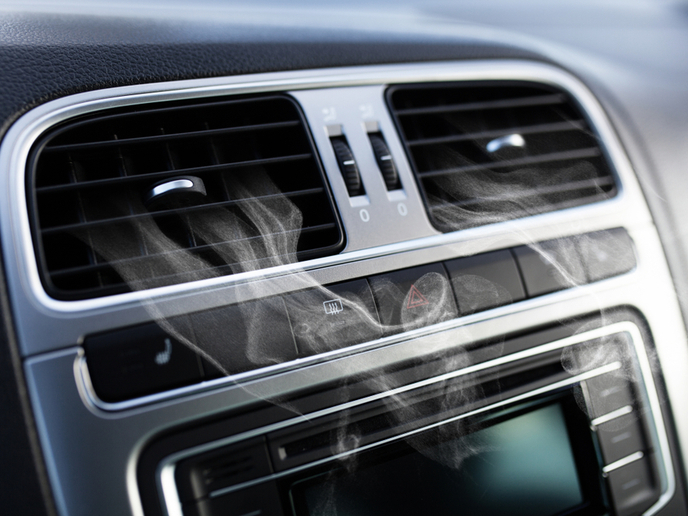High-performance filter to reduce in-car air pollution
Nitrogen oxides and particulate matter make up a great proportion of pollutants emitted from cars. Exposure to these pollutants can lead to major health issues such as stroke, heart disease, lung cancer and respiratory infections. Until now, it was believed that air pollution exposure levels are higher when people cycle or walk than when they are sitting inside a vehicle. A growing number of new findings run counter to that conventional wisdom, showing that air pollution levels inside a vehicle often exceed the accepted exposure limits for both NO2 and particulate matter. These hazardous pollutants mainly stem from the exhausts of other vehicles. The EU-funded project NOXTEK addressed this situation by using cutting-edge nanomaterials to create an air filter. It acts as a highly effective molecular sieve for removing NO2 from polluted air flows. “The breakthrough technology reduces in-car concentrations of NO2 by up to 98 %,” notes John Pickstone, operations director at Alsitek, the UK company producing NOXTEK. State-of-the-art air treatment Growing awareness and concerns about the health effects of vehicle emissions as well as exhaust emissions in some diesel vehicles reflect a strong need for disruptive and timely solutions. Currently, some cars have built-in filtration systems with activated carbon filters. “However, activated carbon layers are not selective about the types of particles that pass the air conditioner; they often trap harmless gas species, leaving troubling pollution particles like NO2 pass through,” notes Pickstone. Temperature and relative humidity have a great impact on the adsorption capacity of cabin air filters. In particular, the ability of activated carbon to function efficiently is severely affected when ambient humidity exceeds 50 %. At humidity levels above 75 %, the filter becomes less efficient. To make matters worse, the production of activated carbon has detrimental environmental impacts. Higher protection against pollutants Recognising the importance of improving air filtration inside the vehicle cabin and its negative impact on occupants’ health, Alsitek developed an eco-friendly inorganic polymer-foam filter. This can remove toxic NO2 gas from incoming air streams with efficiency as high as 98 % at a single pass. Its product is based on both physical adsorption (physisorption) and irreversible chemical reactions (chemisorption). The main advantages of chemisorption are that the pollutant is irreversibly captured, it is independent of the compound's molecular weight, and operates under a wide range of temperature and humidity levels. The high selectivity of this molecular sieve is determined by its high porosity – molecules with diameter less than the pore size of the structure will be absorbed while larger molecules will be excluded. The product may look similar to existing technology, but demonstrates improved performance on all fronts. Its price is comparable with activated carbon, with significant potential to take the lead from that competing technology. While NO2 emissions mainly stem from road transport, these harmful pollutants can also arise from many industrial sources as a result of combustion processes. Therefore, NOXTEK’s new filter technology can also find use for treating industrial emissions, and exhaust gases of ships and trains.







